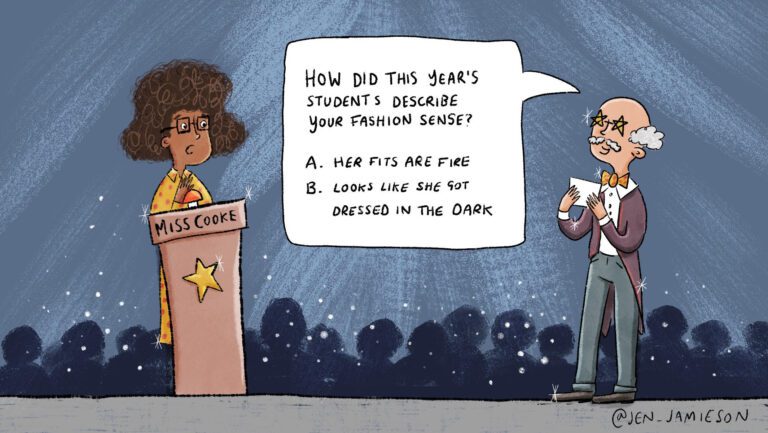It is possible to be both an introvert and a teacher. While it can be tiring for introverts to interact with adults, spending time with students isn’t the same.
What happens, however, when an introvert teacher has conflict with an extroverted colleague? Get advice for the best way for an introverted educator to handle conflict when it’s less than collegial.
1. Take time to gather your thoughts.
Introverts can often become uncomfortable or flustered when conversations take a confrontational tone. When your administrator says something that sounds like a criticism or a co-worker shoots down an idea you know would be brilliant, don’t feel like you have to respond immediately. Take a few minutes to fully consider how you want to answer. Don’t be afraid to say, “I hear what you’re saying and I just want to take a minute to process my own thoughts before I respond.”

2. Ask for clarification.
Our extroverted colleagues often speak as they’re thinking, which is awesome for brainstorming ideas and building enthusiasm. However, it can making it challenging for introverts when they feel they’ve heard something they disagree with or something that seems like a criticism. Asking questions can give you some time to figure out if they really meant what they said in the way you heard it. It can also give them an opportunity to clarify their remarks.

3. Put it off for a day.
If it’s an issue you feel very strongly about, consider walking away…for now. It will give you time to process your fellow teacher or administrators points while focusing your own. Write down your counterarguments so you’ll have something concrete to look at if you forget or get nervous. Your coworker will be able to listen to your well thought-out rebuttals and you won’t end up driving home thinking of all of the things you should have said, but didn’t at the time. Don’t let it go, though. If it really bothers you, go back to talk about it.

4. Find allies.
There isn’t much that’s more intimidating in the workplace than having to standup for yourself, your work, or your ideas to a colleague or superior. If it’s appropriate, find a fellow teacher who shares your views and ask if you both can sit down to chat about the topic at hand. It is much easier to talk about problems you’re having with the new curriculum or how frustrated you are about some aspect of your day if you don’t feel like you’re the only one with the issue. Having someone else to support your ideas and being able to back up theirs will make an introverted teacher feel far more comfortable than if they were alone.

5. Don’t just “let it go!”
Introverts are great at “letting things go,” and by that I mean, pretending things don’t really bother us so we can avoid any uncomfortable conversations even though we’ll dwell on it for weeks. Use one of the strategies above to voice your concerns in a collaborative, open manner or your extroverted colleagues will never know that you disagree with, or were hurt by, what they said. It’s up to you to find a time and method to communicate your true feelings.

Introverts are often natural listeners and have high degrees of empathy. They are often skilled at conflict resolution because they are willing to consider all points of view. They hear everyone out before making a decision. These skills are perfect for peacefully working through disagreements. It can be challenging to use these skills when we’re the ones directly involved in the conflict.
But as introverted teachers it’s up to us to learn how to speak up when we’d rather not. We might just find that our extroverted colleagues have been waiting for us to fill them in on what’s been going on inside our heads all along!


